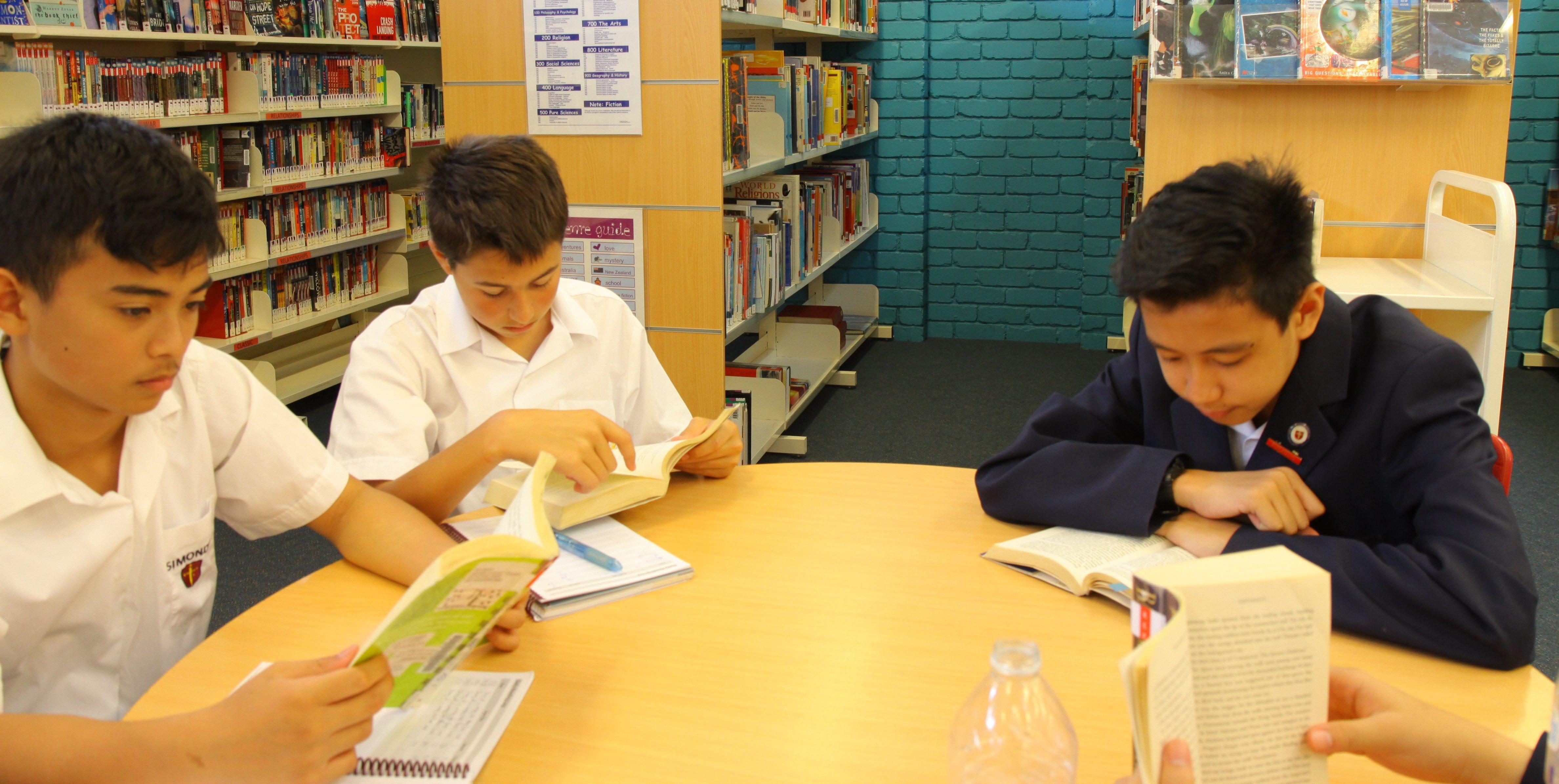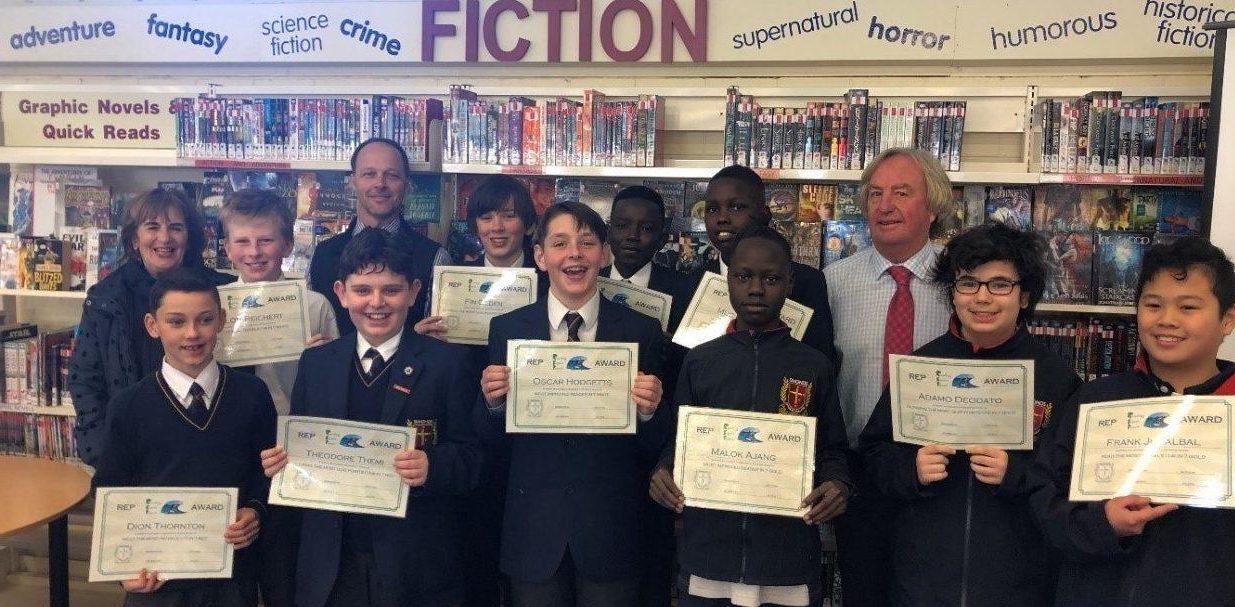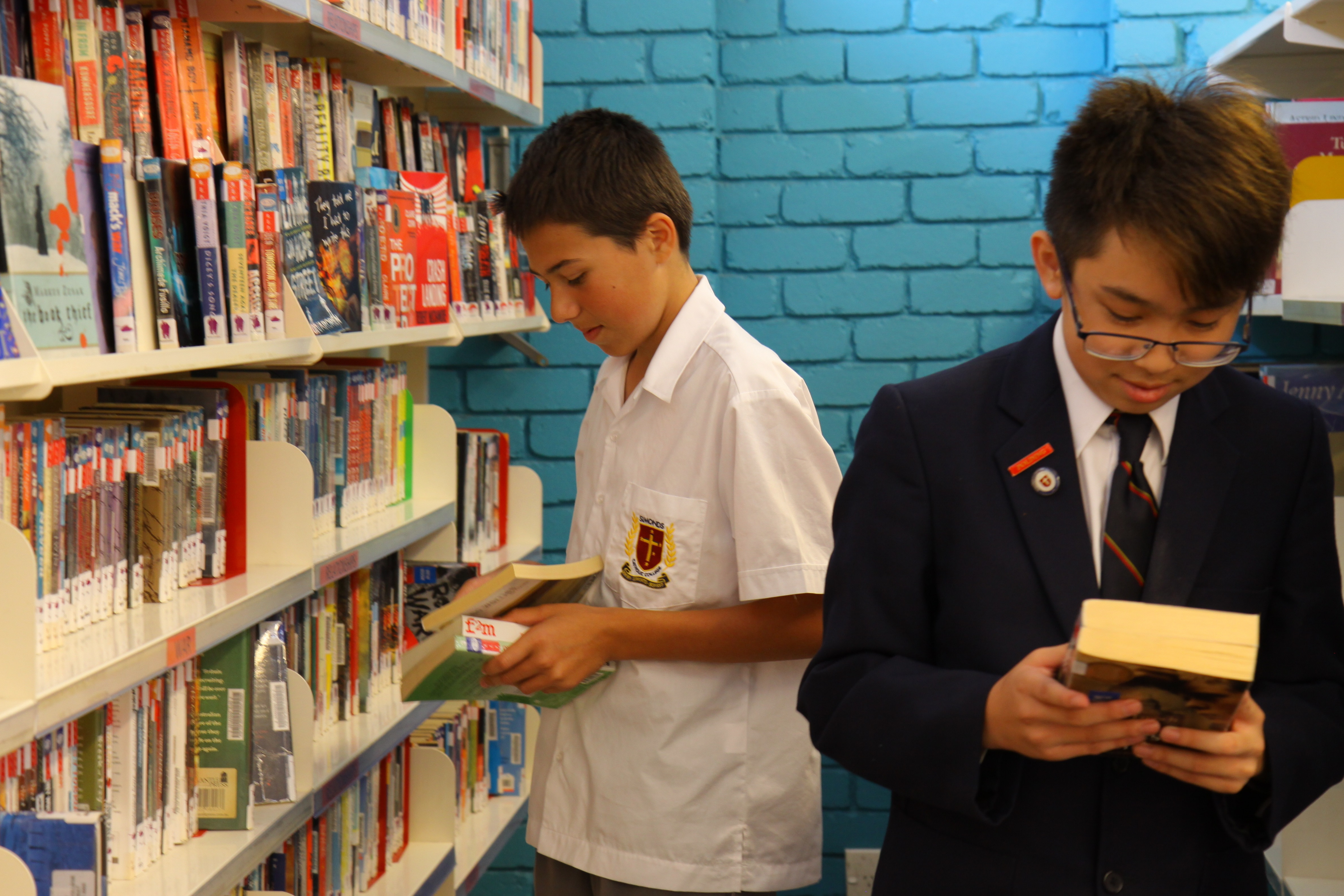What is REP?

REP stands for “Reading Equals Power”.
It’s an appropriate title given the link between wider reading and educational outcomes. REP involves three 30 minute sessions per week, where students read novels of their choice. To ensure the novels chosen are not too hard and not too easy, students read books from within their “reading range”, which is derived from their reading comprehension results. When students finish a novel, they complete an online comprehension quiz. The results of completed quizzes are fed back to teachers, parents and the student. This system allows students to read appropriately levelled material of their choice, whilst allowing teachers to track their students’ progress and provide extra support where necessary.
At the end of each semester, our students’ achievements in REP are celebrated through the presentation of awards for “most improved”, “most books read” and “most quiz points scored”. There is also healthy competition between Homerooms to see who can score the most points.
Research on the importance of wider reading is very clear – it develops crucial cognitive skills, expands vocabulary and develops general knowledge. It really does give students power in the classroom and power in life. As such, it is the expectation that all Simonds students will read not only during REP, but also at home for 30 minutes per day. We ask that parents commit to ensuring this happens.
Year 7-10 students participate in REP.
REP in Action
The Simonds Reading Equals Power (“REP”) program is almost two years old, and has already dramatically changed the reading habits of most of our Year 7-9 students.
In its first year the 329 students involved read 2481 novels and 106,349,074 words.
These figures sound impressive, but sometimes a picture is more eloquent: At 8am on a crowded 58 tram recently, I saw a year 8 Simonds boy named Jet, swaying with the tram’s movement, head bowed, ensconced in his historical fiction novel about WWII. Surrounding him were adults in suits, all glued to their devices, scrolling relentlessly through memes, fashion faux pas and sporting highlights. By reading instead of tweeting, what cultural capital does Jet absorb that might one day help him manage a diverse workplace? What perspectives does he understand that may one day help him understand relationships? In short, plenty. When we got off the tram, he told me he’d started reading for the first time in four years, because of the REP program.

REP isn’t a ‘solve all’, or a panacea for declining literacy standards, but with passionate teachers driving it, it does help build comprehension, fluency, vocabulary and powers of concentration that are transferrable to other academic tasks.
All schools have passionate advocates for reading, and many schools have reading programs: “Drop Everything and Read”, “The Premier’s Reading Challenge”, etc. Sometimes there’s no name for the once-a-week silent reading that happens in English classes.
What’s different about REP?
We believe it has a number of important features that make it work.
Firstly, it’s the regularity of the sessions:
4 days a week for 30 minutes.
As adult readers we know how difficult it is to maintain any momentum if we only read once a week – and we’re adults not struggling teenagers. The school leadership thought hard about introducing REP, but understood that to turn non-readers in regular readers, we had to offer them very regular sessions. Of course some subjects lost contact minutes and that was difficult, but we were steadfast in our belief that above all academic skills, reading was primary.
Secondly, we know that teenage boys are often not adept at choosing the right book for themselves, especially if they are a struggling reader with ambitions to “keep up the with the Jones”. To this end, we employ Accelerated Reader’s software to guide them to read books of an appropriate level. Every six months, students sit a short, standardised, adaptive reading comprehension test that gives them a “Reading Range”.
Every book in our library has a reading level, and boys must choose books within their range.
Thirdly, student progress is closely monitored by teachers, allowing us to celebrate student successes and identify the students who need support. For each novel they finish, students complete a short online book quiz and the results are then fed back to them, their teacher, and their parents. For the students who are improving their reading, these results provide great positive feedback, and several categories of awards given at the end of every semester.
Students complete a quiz after each novel
The regular quiz data is also crucial for identifying students who need extra support, either from their REP teacher or specialist intervention in the form of literacy support with a focus on synthetic phonics. Ultimately, we want students to embrace reading as a joyful, mind-expanding, personal experience, but regular monitoring of their understanding is necessary, because students are skilled at hiding their reading challenges.

Yr 7 REP Award Winners celebrate their achievements. We know that teenage boys love to compete, so in REP, students compete in several categories, and classes compete against each other for the most reading points with the winning house having casual clothes days.
Fourthly, reading is an enormously complex task and does not come easily to all students (hence the important current discussion about how schools should teach reading). To this end, our REP teachers’ focus is to work 1:1 with students helping guide and develop student practice. With their coach’s hat on, they support students to use comprehension strategies such as visualising, or use word attack strategies, or they might simply provide the encouragement and discussion to help make a book come alive.
Finally, in order to embrace the challenges associated with reading, students must have choice in their reading material, so Simonds has invested in literature that is exciting and challenging for boys and have a team of dedicated librarians well versed in finding the ‘right’ book. We also have a large range of “hi-low” readers – short novels with “hi” teenage themes, but “low” word reading requirements. These form a crucial bridge for students with a dyslexic profile who want to explore gritty teenage themes, but who are otherwise held back by their word reading difficulties. We are lucky to be living in an era with so many brilliant young adult authors and there are novels out there for every student.

Jake and Danny browse look for the next big page turner. When it comes to finding the right book, choice is king.
To be a great tennis player, you must hit millions of balls. To be a great reader, you must read millions of words.
But just hitting balls or reading words is not enough. The practice must be customised, rigorous and regular; we need encouragement; to get joy from the task; we need a coach to improve technique; data to monitor our vital statistics, and we need to engage our competitive instincts. Our goal is to support our students, like Rafa Nadal’s coaches support him.

Benedict practises | 
Raffa practises |
Of course, if a student reads this, they might think it a “little over the top”. When I asked some year 7s recently what was best about REP, their answers were simple but profound.
“It’s the perfect way to settle down after recess snacks”
said Naeb, while Henri said,